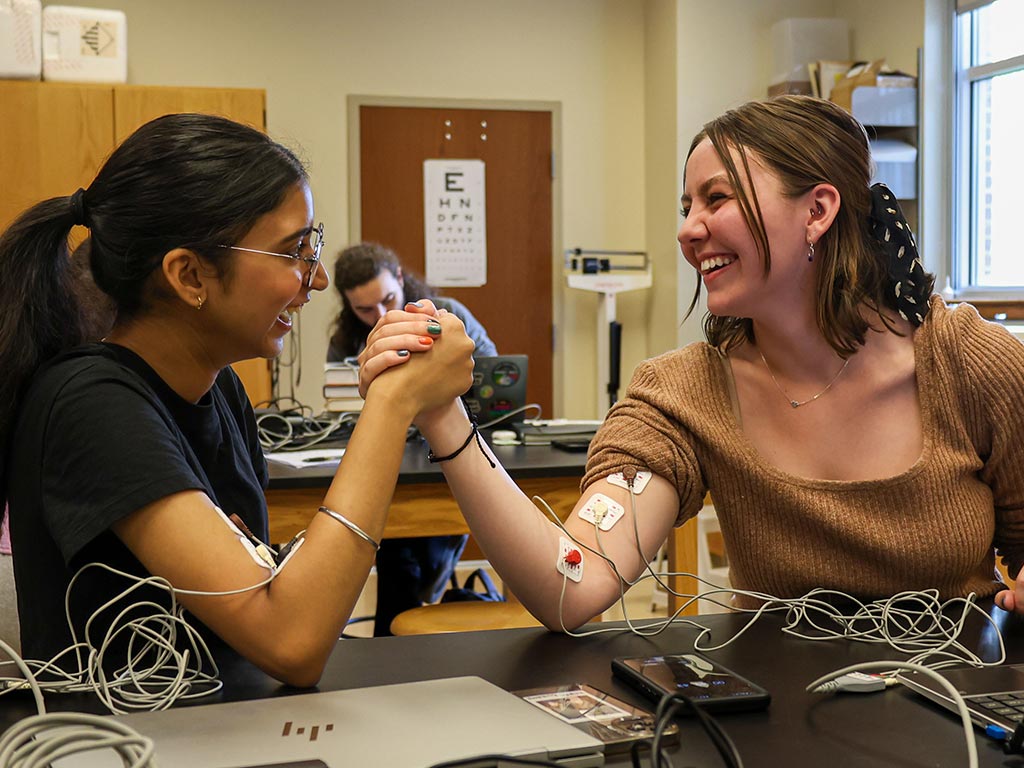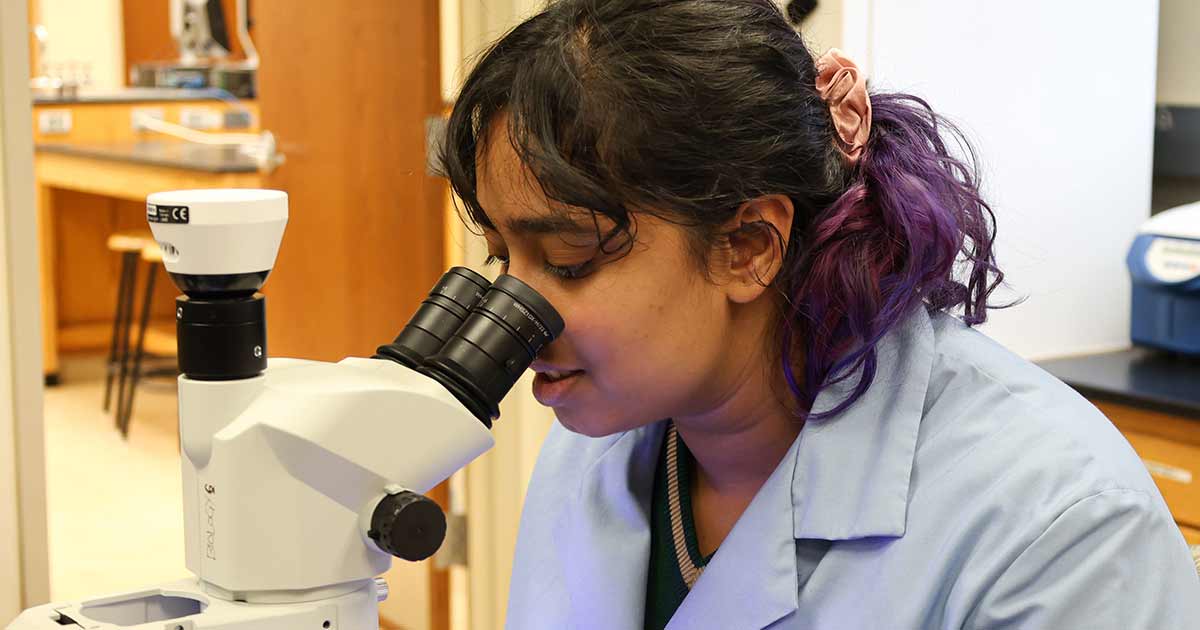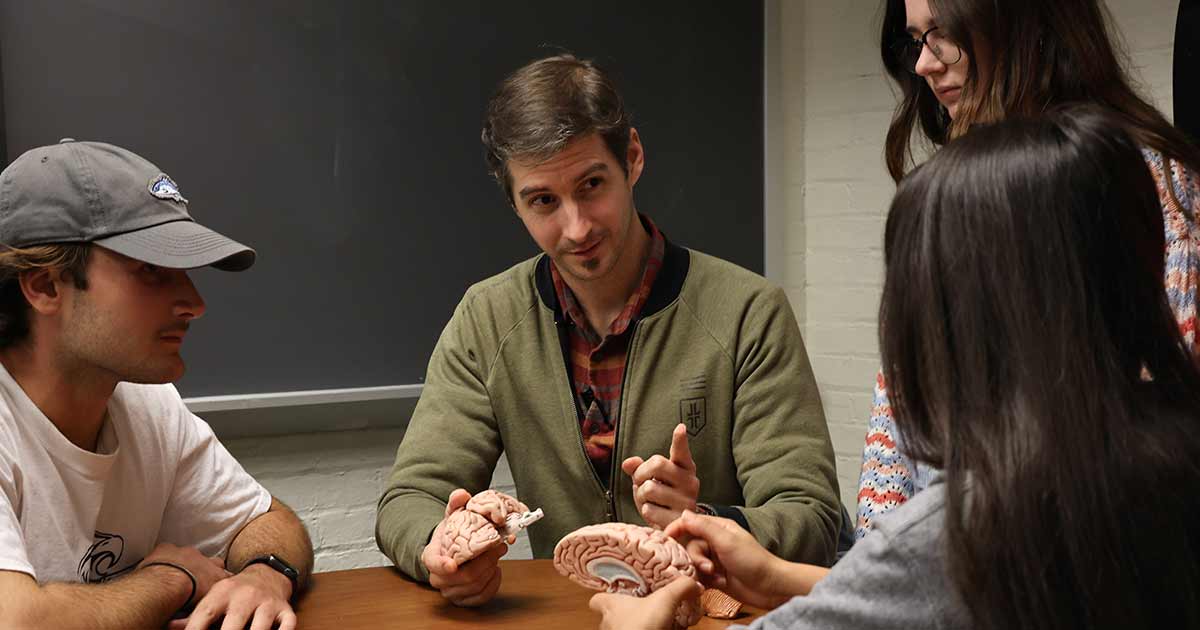
By taking a brain-based perspective on human behavior, you will acquire foundational
knowledge about the structure and function of the nervous system which will allow
for a new level of understanding of cognition, emotion, physiology, disease, and disorder.
As you move through your neuroscience coursework and engage in experiential learning
opportunities, you will gain knowledge and skills in molecular/cellular neuroscience,
cognitive/behavioral neuroscience, systems neuroscience, and other related fields.
You’ll answer questions using thought processes from many disciplines, and understand how many fields of study intersect.

By taking a brain-based perspective on human behavior, you will acquire foundational
knowledge about the structure and function of the nervous system which will allow
for a new level of understanding of cognition, emotion, physiology, disease, and disorder.
As you move through your neuroscience coursework and engage in experiential learning
opportunities, you will gain knowledge and skills in molecular/cellular neuroscience,
cognitive/behavioral neuroscience, systems neuroscience, and other related fields.
You’ll answer questions using thought processes from many disciplines, and understand how many fields of study intersect.

By taking a brain-based perspective on human behavior, you will acquire foundational
knowledge about the structure and function of the nervous system which will allow
for a new level of understanding of cognition, emotion, physiology, disease, and disorder.
As you move through your neuroscience coursework and engage in experiential learning
opportunities, you will gain knowledge and skills in molecular/cellular neuroscience,
cognitive/behavioral neuroscience, systems neuroscience, and other related fields.
You’ll answer questions using thought processes from many disciplines, and understand how many fields of study intersect.
Kathryn Jewett: Juniata Biology Faculty Profile
In the fall of 2020, Kathryn Jewett joined the biology faculty at Juniata College. Despite starting her faculty career in the middle of a pandemic, Kathryn has quickly become an outstanding instructor and researcher. Let's take a few moments to get to know her and learn about her research.
Kathryn Jewett: Juniata Biology Faculty Profile
In the fall of 2020, Kathryn Jewett joined the biology faculty at Juniata College. Despite starting her faculty career in the middle of a pandemic, Kathryn has quickly become an outstanding instructor and researcher. Let's take a few moments to get to know her and learn about her research.
Learn From Experts in Many Fields

Learn From Experts in Many Fields

Learn From Experts in Many Fields

Learn From Experts in Many Fields


Career Opportunities

Career Opportunities

Career Opportunities

Career Opportunities
Conduct Research

Conduct Research

Conduct Research

Conduct Research

 skip to content
skip to content






